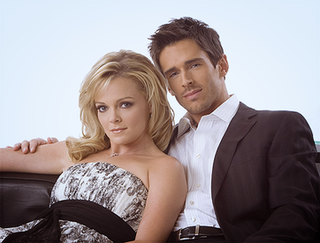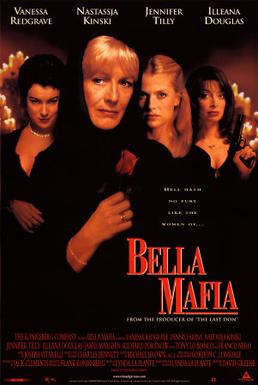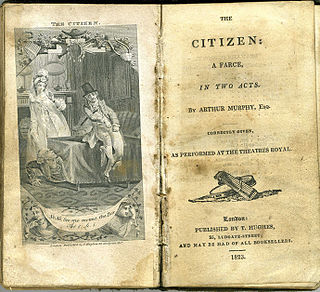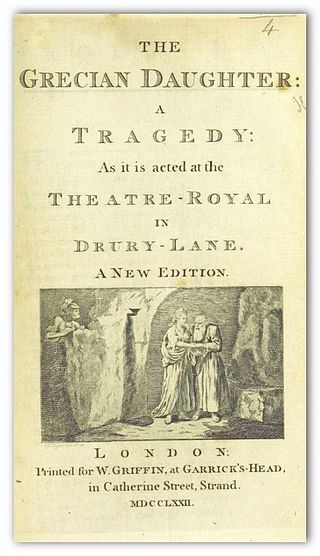
It's a Wonderful World is a 1939 American screwball comedy starring Claudette Colbert and James Stewart, and directed by W. S. Van Dyke.

The White Bull is a fable and a work of "contes philosophiques", a philosophical novel, written by the Age of Enlightenment-era philosopher Voltaire. The story is based on the Greek tale of Europa and the bull, where the white bull is in fact the Greek god Zeus.

Shawn-Douglas "Shawn" and Isabella "Belle" Brady are fictional characters on the American soap opera, Days of Our Lives. Shawn-Douglas Brady has been played by Jason Cook and Brandon Beemer. Belle Black has been played by Kirsten Storms (1999–2004), Charity Rahmer (2004), and Martha Madison. Along with Lucas and Sami, the popular couple has been lauded by critics and fans as one of the soap's next supercouples. They are often referred to as the portmanteau "Shelle" by fans on internet message boards and in magazines. Shawn and Belle have a daughter, Claire Brady.

Clint Buchanan is a fictional character from the American soap opera One Life to Live.
"The Man from Tallahassee" is the 13th episode of the 3rd season of Lost, and the 62nd episode overall. It was aired on March 21, 2007, on ABC. The episode was written by Drew Goddard and Jeff Pinkner and directed by Jack Bender. The character of John Locke is featured in the episode's flashbacks. The episode received critical acclaim and is considered by critics and fans as one of the best episodes of Lost.

Los ricos también lloran is a popular telenovela produced in Mexico in 1979, starring Verónica Castro, Rogelio Guerra and Rocío Banquells. Castro also sang the theme Aprendí a Llorar, a song written by Lolita de la Colina. The telenovela was produced by Valentín Pimstein and Carlos Romero, it was directed by Rafael Banquells. The story was written by Inés Rodena and adapted by Valeria Philips.

Forbidden is a 1932 American pre-Code melodrama film directed by Frank Capra and starring Barbara Stanwyck, Adolphe Menjou, and Ralph Bellamy. An original story inspired by the 1931 novel Back Street by Fannie Hurst, with a screenplay by Jo Swerling, the film is about a young librarian who falls in love with a married man while on a sea cruise.

Dyosa (transl. Goddess) is a Philippine television drama fantasy series broadcast by ABS-CBN. Directed by Wenn V. Deramas, it stars Anne Curtis, Sam Milby, Zanjoe Marudo and Luis Manzano. It aired on the network's Primetime Bida line up and worldwide on TFC from August 11, 2008 to January 16, 2009 and was replaced by Tayong Dalawa.

Bella Mafia is a 1997 American television film starring Vanessa Redgrave, Nastassja Kinski, Jennifer Tilly, Illeana Douglas and Dennis Farina. Redgrave was nominated for the Golden Globe Award for Best Actress – Miniseries or Television Film.
A Indomada is a Brazilian telenovela produced and aired by a Brazilian free-to-air television network called Rede Globo. It ran from February 17 to October 11, 1997. It was written by Aguinaldo Silva and Ricardo Linares, with the collaboration of Maria Elisa Berredo, Mark Silver and Nadotti Nelson; directed by Marcos Paulo Roberto Naar and Luiz Henrique Reis; and general direction and core by Marcos Paulo.

Yahan Main Ghar Ghar Kheli, produced by Rajshri Productions, was an Indian dramatic serial that aired on Zee TV Monday to Friday evenings. It was well received, and stopped running on air in July 2012. It was aired on Apna TV in New Zealand and FBC TV in Fiji. Notable actors Zarina Wahab, Zahida Parveen, Alok Nath and Smita Jaykar acted in this serial as well. Lyricist Raghvendra Singh is the creative director in this serial.

Khiladi is a Bengali romantic action comedy film directed by Ashok Pati and produced by Ashok Dhanuka under the banner of Eskay Movies. The film features Bengali actors Ankush Hazra and Nusrat Jahan in the lead roles. The music of the film has been composed by Shree Pritam. The film was released on 11 October 2013. This film is a remake of 2012 Telugu movie Denikaina Ready which itself was a remake of the 1999 Malayalam film Udayapuram Sulthan.
Nephté is an opera by the French composer Jean-Baptiste Lemoyne, first performed at the Académie Royale de Musique on 15 December 1789. It takes the form of a tragédie lyrique in three acts. The libretto, by François-Benoît Hoffman, is set in Ancient Egypt but is based on the story of Camma, Queen of Galatia taken from the ancient historian Plutarch.

Vairam (transl. Diamond) is a 1974 Indian Tamil-language action spy film directed by T. R. Ramanna and written by T. K. Balu. The film stars Jaishankar and Jayalalithaa, with M. R. R. Vasu, S. A. Ashokan and R. S. Manohar in supporting roles. It is a remake of the 1972 Hindi film Victoria No. 203. The film was released on 24 May 1974, and became a box office hit.

Jaana Na Dil Se Door was an Indian television series that aired on StarPlus. It stars Vikram Singh Chauhan, Shivani Surve and Shashank Vyas. The show also features Sara Khan, Smita Bansal, Vineet Kumar and Shilpa Tulaskar in key roles. The show ended on 30 June 2017.

Ishqbaaaz (transl. Lovers) is an Indian romantic drama television series that aired from 27 June 2016 to 15 March 2019 on Star Plus. It initially starred Nakuul Mehta, Surbhi Chandna, Kunal Jaisingh, Shrenu Parikh, Leenesh Mattoo and Mansi Srivastava. In December 2018, the show took a generation leap and aired a new season, Ishqbaaz: Pyaar Ki Ek Dhinchak Kahaani starring Nakuul Mehta and Niti Taylor.

Brahmarakshas is an Indian Hindi-language supernatural thriller television series that aired on Zee TV for two seasons. It is digitally available on ZEE5. It is a franchise produced by Ekta Kapoor under her studio Balaji Telefilms.

The Citizen is a 1761 comedy play by the Irish writer Arthur Murphy. A farce it was first staged at the Theatre Royal, Covent Garden in London on 2 July 1761. Another of Murphy's works The Old Maid was staged as the afterpiece The original cast included Edward Shuter as Old Philpot, Henry Woodward as Young Philpot, John Dunstall as Sir Jasper Wilding, Patrick Costollo as Dapper, James Perry as Quilldrive, Ann Elliot as Maria and Elizabeth Davies as Corinna. The Dublin premiere took place at the Crow Street Theatre on 11 November 1761.

The Grecian Daughter is a 1772 tragedy by the Irish writer Arthur Murphy. It was widely performed for nearly sixty years, through the 1830s. For many British actresses in the eighteenth century, playing the role of the central heroine, Euphrasia, was an important part of gaining fame.

The WelchHeiress is a 1795 comedy play written by Edward Jerningham. Although it had only a single stage performance, the published script had some success.

















